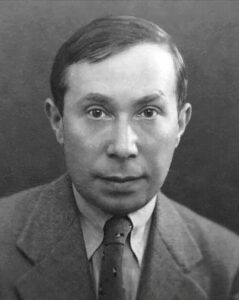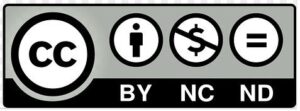Sobre Apología y Critón Strūthiō 009
Parte de:
«Sobre la Apología de Sócrates y el Critón de Platón» / I

Leōnardus Strūthiō (1899-1973)
ĒRVDĪTIŌRIBVS ***
Tabla de contenidos
Versiō hispānica Aemiliā Aquadītī auctrīce 9
Sócrates dice ahora que los oráculos del dios le ordenaron pasar la vida filosofando y examinándose a sí mismo y a otros. En la primera digresión, todo el acento se ponía en su examen de otros. ¿El filosofar equivale al conocimiento de la propia ignorancia respecto de las cosas más importantes? Tal como surge del presente contexto, el conocimiento de la propia ignorancia va unido al conocimiento que Sócrates tiene de que actuar injustamente y desobedecer a quien es mejor que uno, sea hombre o dios, es malo y oprobioso: la sabiduría humana es más que la intuición de la carencia de valor de la sabiduría humana. Sócrates no sabe lo que la mayoría de la gente cree saber, esto es, que la muerte es el mayor mal, porque él no tiene suficiente conocimiento de las cosas del Hades (no ha investigado todas las cosas bajo la tierra): por lo que sabe, la muerte puede ser el bien más grande. En consecuencia, no tomaría en cuenta un ofrecimiento del jurado de liberarlo a condición de dejar de filosofar, porque obedecerá al dios antes que a aquel: desobedecerá un fallo o una ley que le impidan filosofar porque obedecerá al dios antes que al jurado o la ciudad; no dice que obedecerá a su propio juicio antes que a las leyes. Su filosofar está unido a la exhortación que hace a todos los atenienses que halla en su camino —preocuparse por la racionalidad, la verdad y la bondad de su alma, y no por la riqueza, la fama y el honor—, y a la refutación de aquellos que afirman estar ocupados en las cosas más valiosas sin que sea así. Su exhortación a ocuparse de la bondad del alma consiste en mostrar que la virtud no procede de la riqueza, sino que de aquella proceden esta y todas las demás cosas buenas para el hombre, tanto en la vida privada como en la vida pública. Su filosofar consiste principalmente en exhortar a la gente a la virtud como la cosa más valiosa. Puesto que la virtud es lo que hace buenas para el hombre todas las demás cosas, sus acusadores no pueden perjudicarlo, pero los atenienses se perjudicarán si, por condenarlo, se privan de la merced concedida por el dios. Porque el dios lo entregó a la ciudad como un tábano a un grande y noble caballo que, a causa de su tamaño, es bastante perezoso y necesita que lo despierten de su modorra. La comparación es, como dice Sócrates, bastante ridícula: él no deja de aguijonear, no a la ciudad en cuanto tal, sino a cada individuo «todo el día y en todas partes»; tiene y no tiene a su cuidado los asunto de la ciudad.
Perge ad initium paginae huius
Leōnardī Strūthiōnis verba 9
Socrates says now that the god’s oracles commanded him to spend his life philosophizing and examining himself and others. In the first digression the emphasis was altogether on his examining others. Is philosophizing the same as realizing one’s ignorance regarding the most important things? As appears from the present context, knowledge of one’s ignorance goes together with the knowledge Socrates possesses that acting unjustly and disobeying one’s better, be he man or god, is bad and disgraceful: human wisdom is more than the insight into the worthlessness of human wisdom. He does not know what most people believe that they know, namely, that death is the greatest evil, for he does not have sufficient knowledge of the things in Hades (he has not investigated all things beneath the earth); for all he knows death may be the greatest good. Accordingly he would not consider an offer of the jury to release him on the condition that he no longer philosophize, because he will obey the god rather than the jury: he will disobey a ruling or a law forbidding him to philosophize because he will obey the god rather than the jury or the city; he does not say that he would obey his own judgment rather than the laws. His philosophizing goes together with his exhorting any Athenian he meets to concern himself with reasonableness, truth and the goodness of his soul rather than with wealth, fame and honour, and his refuting those who claim to be concerned with the most valuable things without being so. His exhortation to be concerned with goodness of the soul consists in showing that virtue does not come from wealth but from virtue come wealth and all other things good for man in both private and public life. His philosophizing consists chiefly in exhorting people to virtue as the most valuable thing. Since it is virtue that makes all other things good for man, his accusers cannot harm him but the Athenians will harm themselves if by condemning him to die they deprive themselves of the god-given boon. For the god has given him to the city as a gadfly to a great and noble horse that because of its size is rather sluggish and needs to be awakened from its drowsiness. The comparison is, as Socrates says, rather ludicrous: he unceasingly pricks, not the city as city but every individual “the whole day everywhere”; he does, and does not, take care of the affairs of the city.
Perge ad initium paginae huius
Iūra
El texto en lengua inglesa fue publicado de manera póstuma en un volumen en honor al prof. Jacob Klein: Essais in Honor of Jacob Klein (Annapolī, ē Typographeō Acadēmīae Sānctī Iōhannis MCMLXXVI). Aunque nosotros tomamos como base lo aparecido en una antología dedicada a escritos del prof. Strūthiō en inglés en 1983: Studies in Platonic Political Philosophy (Sicagī, ē Typographeō Ūniversitātis Sicagī MCMLXXXIII). La versión castellana es obra de Aemilia Aquadīs, aparecida en la traducción del volumen mencionado anteriormente (Bonāeropolī, ē Typographeō Amōrrortī MMVIII). La publicación de estos fragmentos promueve la difusión en castellano de la obra del profesor Leōnardus Strūthiō con fines académicos y de formación. Conminamos a visitar su biblioteca más cercana o adquirir el volumen físico en su librería de confianza.

Perge ad initium paginae huius
ĒRVDĪTIŌRIBVS ***
